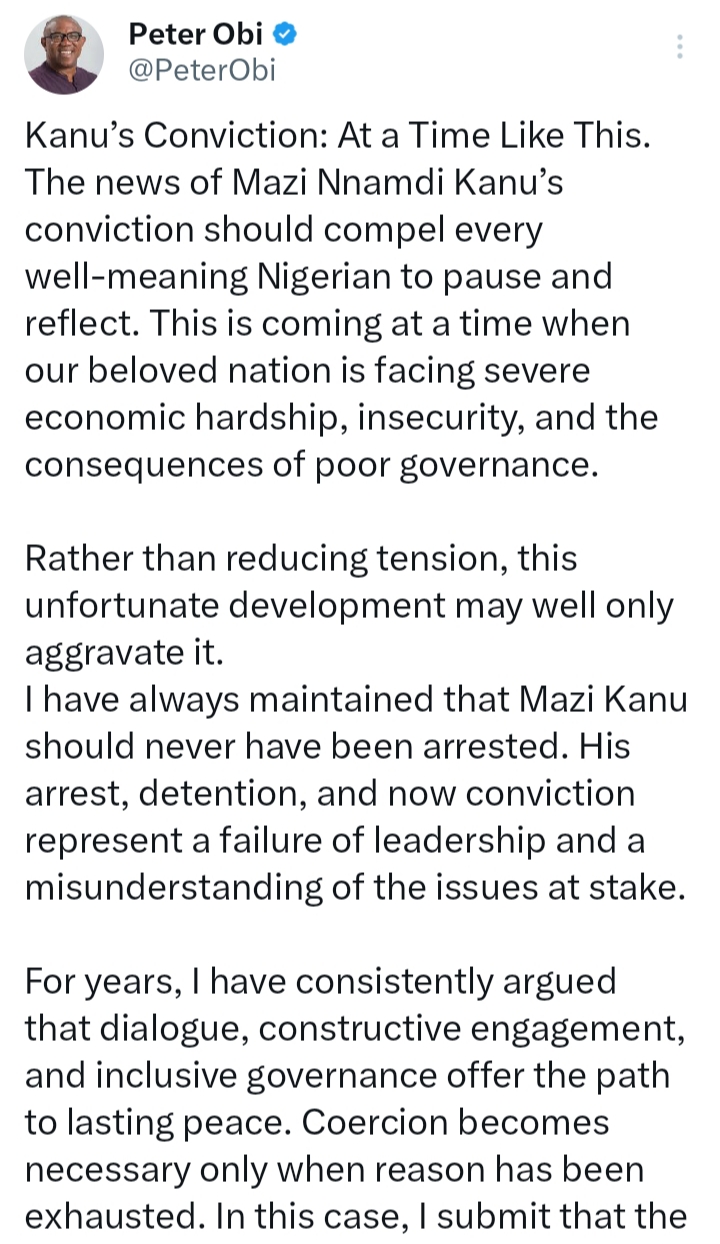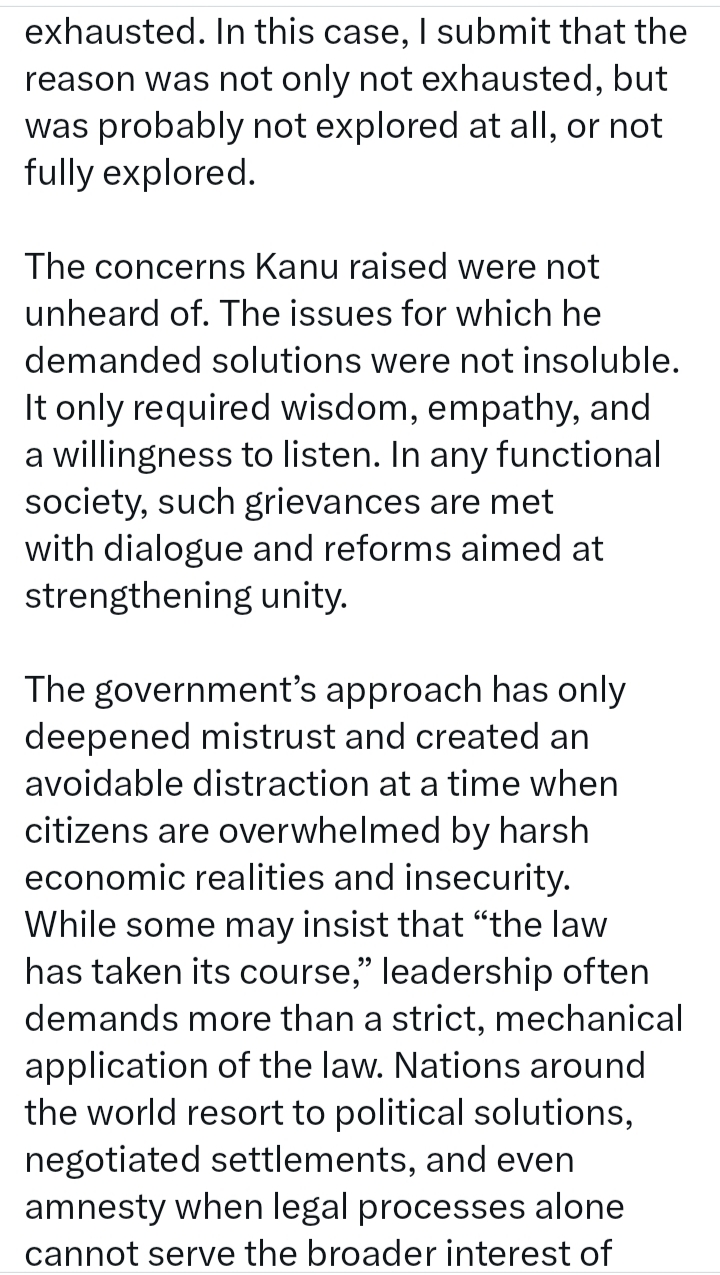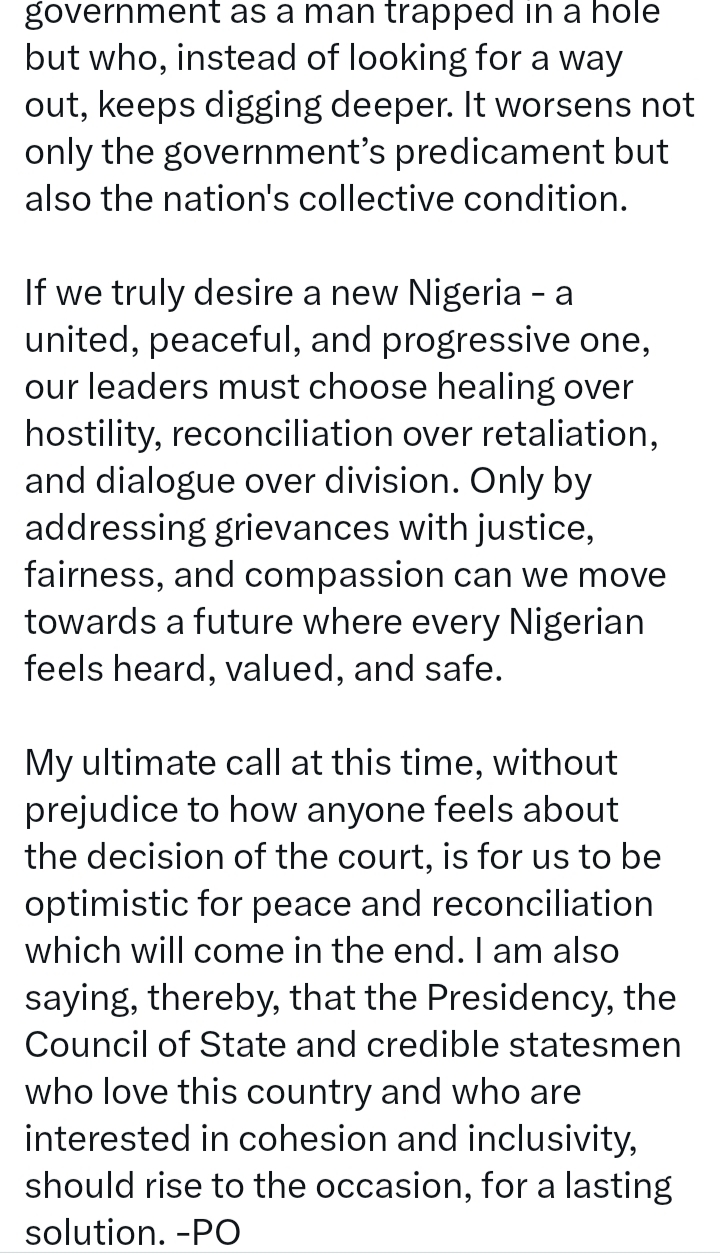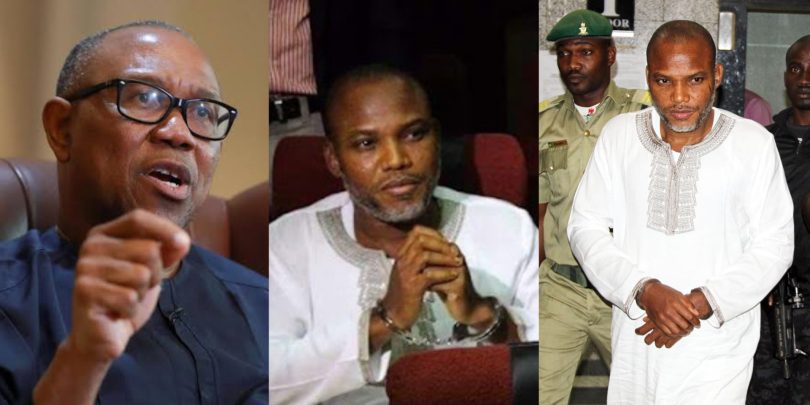Labour Party presidential candidate, Peter Obi, has expressed concern over the conviction of IPOB leader, Mazi Nnamdi Kanu, describing the development as ill-timed and potentially destabilising given Nigeria’s current economic and security challenges.
In a statement issued on Friday, Obi said the judgment should prompt deep reflection among Nigerians, noting that the country is already struggling with widespread hardship, insecurity, and declining public trust. He warned that the conviction may heighten existing tensions rather than ease them.
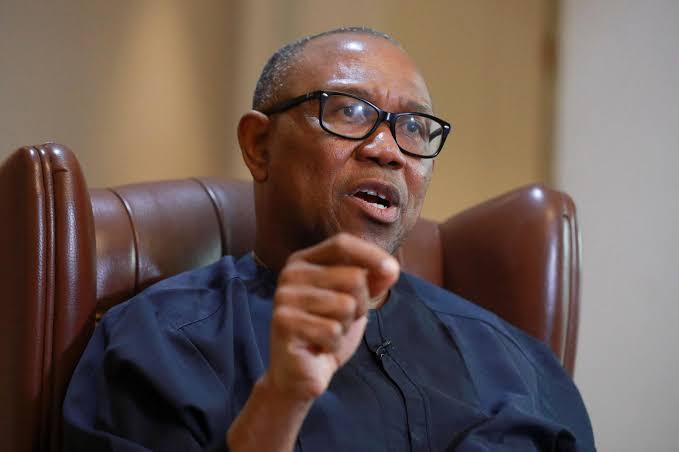
Obi shares his stance on Nnamdi Kanu
Obi reiterated his long-held position that Kanu’s arrest and prolonged detention were unnecessary, arguing that the situation represents a failure of leadership and a lack of engagement with underlying grievances. He maintained that issues raised by Kanu required dialogue, empathy, and inclusive governance rather than force.
According to the former Anambra State governor, nations facing similar internal agitations often explore political resolutions, negotiated settlements, or amnesty where legal actions alone cannot guarantee peace or national stability. He said Nigeria should adopt the same approach, especially at a time when citizens are overwhelmed by economic hardship and insecurity.
Obi berates FG
Obi criticised the government’s handling of the matter, saying it has deepened mistrust and created further distractions from urgent national priorities. He urged the Presidency, Council of State, and respected national figures to intervene and champion a solution that promotes reconciliation and unity.
He called for restraint, optimism, and renewed efforts toward peace-building, stressing that Nigeria can only progress when grievances are addressed with justice, fairness, and compassion.
His statement in full …
“Kanu’s Conviction: At a Time Like This.
The news of Mazi Nnamdi Kanu’s conviction should compel every well-meaning Nigerian to pause and reflect. This is coming at a time when our beloved nation is facing severe economic hardship, insecurity, and the consequences of poor governance.
Rather than reducing tension, this unfortunate development may well only aggravate it.
I have always maintained that Mazi Kanu should never have been arrested. His arrest, detention, and now conviction represent a failure of leadership and a misunderstanding of the issues at stake.
For years, I have consistently argued that dialogue, constructive engagement, and inclusive governance offer the path to lasting peace. Coercion becomes necessary only when reason has been exhausted. In this case, I submit that the reason was not only not exhausted, but was probably not explored at all, or not fully explored.
The concerns Kanu raised were not unheard of. The issues for which he demanded solutions were not insoluble. It only required wisdom, empathy, and a willingness to listen. In any functional society, such grievances are met with dialogue and reforms aimed at strengthening unity.
The government’s approach has only deepened mistrust and created an avoidable distraction at a time when citizens are overwhelmed by harsh economic realities and insecurity. While some may insist that “the law has taken its course,” leadership often demands more than a strict, mechanical application of the law. Nations around the world resort to political solutions, negotiated settlements, and even amnesty when legal processes alone cannot serve the broader interest of peace and stability. Nigeria is not an exception.
The handling of Kanu’s case mirrors the government as a man trapped in a hole but who, instead of looking for a way out, keeps digging deeper. It worsens not only the government’s predicament but also the nation’s collective condition.
If we truly desire a new Nigeria – a united, peaceful, and progressive one, our leaders must choose healing over hostility, reconciliation over retaliation, and dialogue over division. Only by addressing grievances with justice, fairness, and compassion can we move towards a future where every Nigerian feels heard, valued, and safe.
My ultimate call at this time, without prejudice to how anyone feels about the decision of the court, is for us to be optimistic for peace and reconciliation which will come in the end. I am also saying, thereby, that the Presidency, the Council of State and credible statesmen who love this country and who are interested in cohesion and inclusivity, should rise to the occasion, for a lasting solution. -PO”
See post below …
